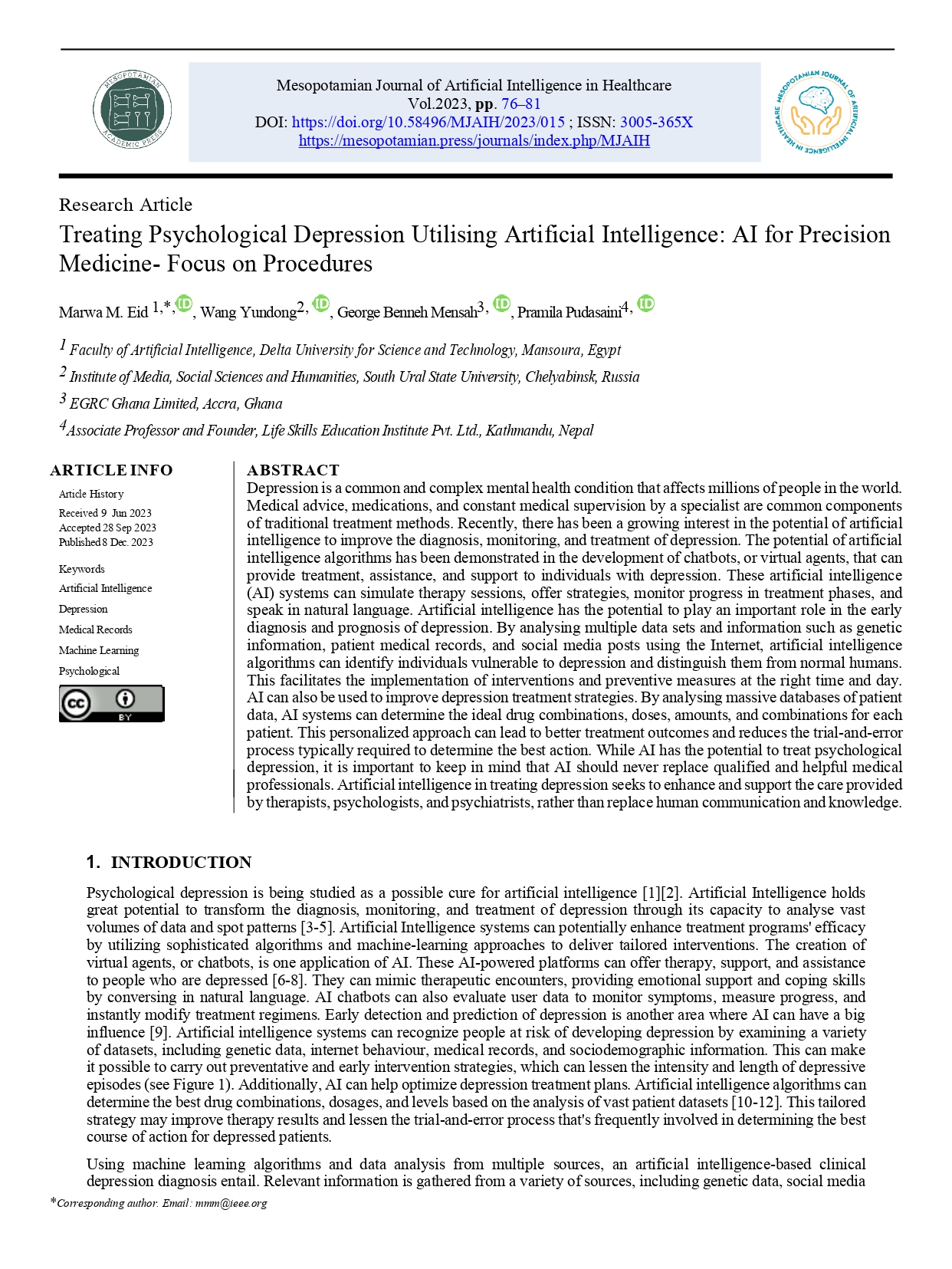Treating Psychological Depression Utilising Artificial Intelligence: AI for Precision Medicine- Focus on Procedures
Main Article Content
Abstract
Depression is a common and complex mental health condition that affects millions of people in the world. Medical advice, medications, and constant medical supervision by a specialist are common components of traditional treatment methods. Recently, there has been a growing interest in the potential of artificial intelligence to improve the diagnosis, monitoring, and treatment of depression. The potential of artificial intelligence algorithms has been demonstrated in the development of chatbots, or virtual agents, that can provide treatment, assistance, and support to individuals with depression. These artificial intelligence (AI) systems can simulate therapy sessions, offer strategies, monitor progress in treatment phases, and speak in natural language. Artificial intelligence has the potential to play an important role in the early diagnosis and prognosis of depression. By analysing multiple data sets and information such as genetic information, patient medical records, and social media posts using the Internet, artificial intelligence algorithms can identify individuals vulnerable to depression and distinguish them from normal humans. This facilitates the implementation of interventions and preventive measures at the right time and day. AI can also be used to improve depression treatment strategies. By analysing massive databases of patient data, AI systems can determine the ideal drug combinations, doses, amounts, and combinations for each patient. This personalized approach can lead to better treatment outcomes and reduces the trial-and-error process typically required to determine the best action. While AI has the potential to treat psychological depression, it is important to keep in mind that AI should never replace qualified and helpful medical professionals. Artificial intelligence in treating depression seeks to enhance and support the care provided by therapists, psychologists, and psychiatrists, rather than replace human communication and knowledge.
Article Details
Issue
Section

This work is licensed under a Creative Commons Attribution 4.0 International License.
